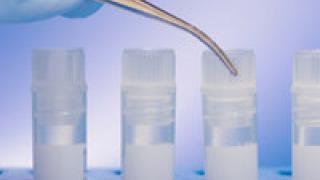Patients prepare to sue, as doctor is struck off for providing unproven stem cell treatments

A doctor struck off for using “anecdotal and aspirational” stem cell treatments is likely to be sued by his patients.
Dr Robert Trossel who had consulting rooms in London and a clinic in Rotterdam, charged thousands of pounds for unproven stem cell treatments. He was struck off by the General Medical Council (GMC) for exploiting people with multiple sclerosis.
Jill Paterson, from solicitors Leigh Day & Co, said: “We support the GMC's findings that Dr Trossel is no longer fit to practise in the UK.” She said that hundreds of vulnerable people who travelled to the Netherlands for treatment may now seek compensation and that her firm is actively investigating the pursuit of legal proceedings against him.
The GMC found that Dr Trossel had breached good medical practice by “exploiting vulnerable patients” who suffered from an acute form of multiple sclerosis.
The doctor had charged patients up to £10,000 for the stem cell injections although the GMC ‘Fitness to Practise’ panel was told that “the experience not only cost them financially but for the most part it caused them personal and emotional loss when they realised that the treatment provided to them was not only expensive but pointless.”
The stem cells offered were not intended for human use, only for laboratory research. The treatment also contained bovine brain and spinal cord. The GMC panel ruled that Dr Trossel had abused his position by failing to warn about the risk of vCJD.
One patient said she now lives in fear of this disease, for which there is no test or treatment. Another said that despite paying £8,000, the treatment was delivered in a “coffee lounge” rather than a private treatment room.
Stem cell therapy offered "scant", if any, prospect of alleviation of MS symptoms, the GMC panel said.
Dr Trossel admitted he had been “too enthusiastic” about the treatments, but said he was “disappointed” by the judgement. He also expressed his regret “for any distress caused to [his] patients during this time.”
Sources
